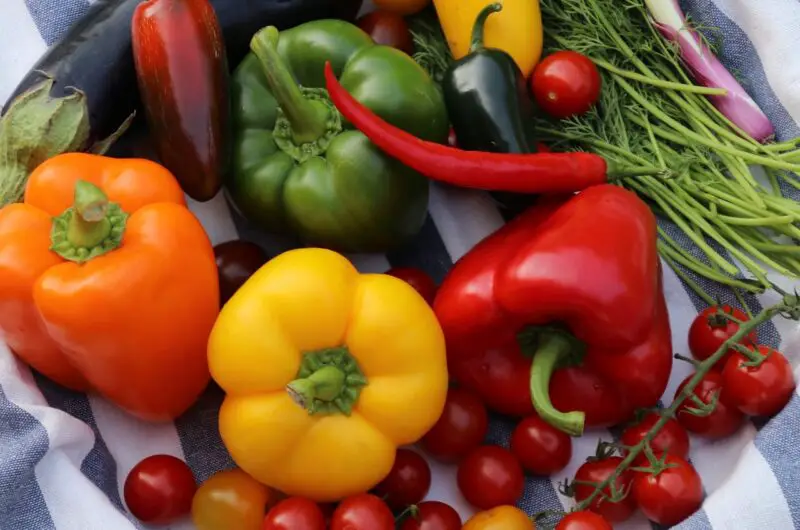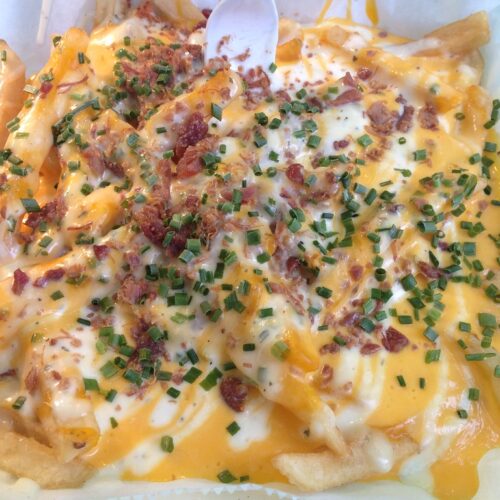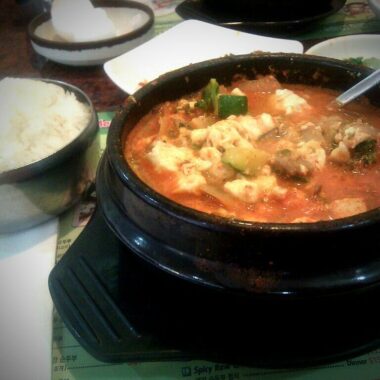Switching to a vegan lifestyle or simply incorporating more plant-based foods into your diet starts with a well-planned grocery list. Whether you’re a seasoned vegan or just getting started, having a comprehensive shopping list ensures that your meals are nutritious, delicious, and satisfying.
This guide will help you navigate the grocery store with confidence, providing a detailed breakdown of all the essential vegan foods you should stock up on. From fresh produce to pantry staples, proteins, and plant-based snacks, this list will help you create balanced, flavorful meals that align with your dietary goals.
Why Have a Vegan Grocery List?
A structured grocery list is essential for several reasons:
- Saves Time and Money: Shopping with a list prevents impulse purchases and helps you stick to a budget.
- Ensures Nutritional Balance: A well-thought-out list includes protein, fiber, healthy fats, and essential vitamins and minerals.
- Reduces Waste: Buying only what you need prevents food waste and promotes sustainability.
- Encourages Variety: A comprehensive list helps you explore different plant-based ingredients and flavors.
Now, let’s dive into a complete vegan grocery list categorized by food groups.
1. Fresh Produce
Fruits and vegetables are the foundation of a vegan diet, providing essential vitamins, minerals, antioxidants, and fiber.
Vegetables
- Leafy greens (spinach, kale, arugula, romaine, Swiss chard)
- Cruciferous vegetables (broccoli, cauliflower, Brussels sprouts, cabbage)
- Root vegetables (carrots, sweet potatoes, beets, turnips)
- Nightshades (tomatoes, bell peppers, eggplant)
- Squash (butternut, zucchini, acorn)
- Mushrooms (portobello, cremini, shiitake)
- Onions, garlic, and leeks
- Avocados (for healthy fats)
- Cucumbers, celery, and radishes (great for salads)
Fruits
- Berries (strawberries, blueberries, raspberries, blackberries)
- Citrus fruits (oranges, lemons, limes, grapefruits)
- Apples and pears
- Bananas (great for snacking and smoothies)
- Stone fruits (peaches, nectarines, plums, cherries)
- Melons (watermelon, cantaloupe, honeydew)
- Grapes and kiwis
- Pineapples, mangoes, and papayas (for tropical flavor)
- Dried fruits (dates, figs, raisins, apricots)
2. Plant-Based Proteins
Protein is crucial for muscle maintenance, energy, and overall health. Thankfully, there are plenty of vegan protein sources.
Legumes & Beans
- Lentils (green, red, black)
- Chickpeas (garbanzo beans)
- Black beans, kidney beans, pinto beans, navy beans
- Edamame (young soybeans)
- Peas (green peas, split peas)
Tofu, Tempeh, and Seitan
- Tofu (soft, firm, extra-firm)
- Tempeh (fermented soy product, rich in probiotics)
- Seitan (wheat gluten, a high-protein meat substitute)
Plant-Based Meat Alternatives
- Vegan burgers, sausages, and crumbles (Beyond Meat, Impossible, Gardein, etc.)
- Jackfruit (a great meat substitute for pulled “pork” dishes)
Nuts & Seeds
- Almonds, cashews, walnuts, pecans, pistachios, Brazil nuts
- Chia seeds, flaxseeds, hemp seeds (great for omega-3 fatty acids)
- Pumpkin seeds and sunflower seeds
- Nut butters (peanut butter, almond butter, cashew butter)
3. Whole Grains & Carbohydrates
Whole grains provide essential fiber, B vitamins, and long-lasting energy.
- Brown rice, wild rice, jasmine rice
- Quinoa (a complete protein source)
- Whole wheat bread, wraps, and bagels
- Oats (steel-cut, rolled, quick oats)
- Barley, farro, bulgur, millet
- Whole wheat pasta, chickpea pasta, lentil pasta
- Corn tortillas and whole grain tortillas
4. Dairy Alternatives
You don’t have to miss out on creamy, delicious dairy products with these plant-based alternatives.
Non-Dairy Milk
- Almond milk
- Soy milk (high in protein)
- Oat milk
- Coconut milk
- Cashew milk
- Rice milk
Vegan Yogurt & Cheese
- Coconut, soy, or almond-based yogurt
- Dairy-free cheese (cheddar, mozzarella, cream cheese, parmesan)
- Nutritional yeast (adds a cheesy flavor and is rich in B12)
Butter & Cream Alternatives
- Vegan butter (Miyoko’s, Earth Balance, etc.)
- Coconut cream or cashew cream (great for cooking and baking)
5. Healthy Fats
Healthy fats are essential for brain function, skin health, and overall well-being.
- Olive oil (great for cooking and salad dressings)
- Coconut oil (good for high-heat cooking)
- Avocado oil
- Flaxseed oil (rich in omega-3s)
6. Vegan Condiments & Sauces
Adding the right condiments can enhance your meals with bold flavors.
- Hummus (a great dip and spread)
- Tahini (sesame seed paste, perfect for dressings)
- Salsa, guacamole, and pico de gallo
- Mustard, ketchup, and hot sauce (check labels for honey)
- Soy sauce or tamari (for a gluten-free option)
- Miso paste (for soups and marinades)
- Coconut aminos (a soy-free alternative to soy sauce)
- Vinegars (apple cider vinegar, balsamic, red wine vinegar)
- Maple syrup and agave nectar (natural sweeteners)
7. Snacks & Treats
Everyone needs a few go-to snacks for when cravings hit!
- Popcorn (check for dairy-free options)
- Dark chocolate (ensure it’s dairy-free)
- Vegan protein bars
- Dried fruit and nut mixes
- Rice cakes with nut butter
- Roasted chickpeas or lentil chips
- Vegan ice cream (coconut, almond, or oat-based)
- Plant-based granola
8. Beverages
Staying hydrated is just as important as eating well.
- Herbal teas (chamomile, peppermint, green tea)
- Fresh-pressed juices
- Kombucha (fermented tea for gut health)
- Coconut water (hydrating and full of electrolytes)
- Sparkling water (for a refreshing alternative to soda)
9. Baking & Cooking Essentials
If you love cooking and baking, these staples will come in handy.
- Flour (all-purpose, whole wheat, almond, coconut)
- Baking powder and baking soda
- Cocoa powder (for chocolatey recipes)
- Coconut sugar, maple syrup, or agave nectar
- Cornstarch (for thickening sauces and soups)
- Vanilla extract
- Canned coconut milk (for creamy desserts and curries)
10. Frozen Foods
Frozen foods help with meal prep and ensure you always have ingredients on hand.
- Frozen fruits (berries, mango, pineapple, bananas)
- Frozen vegetables (spinach, peas, corn, green beans)
- Vegan frozen meals (for quick and easy dinners)
- Dairy-free ice cream and sorbets
Tips for a Successful Vegan Shopping Trip
- Read Labels Carefully: Some products may contain hidden animal ingredients like whey, casein, gelatin, or honey.
- Buy in Bulk: Stocking up on grains, beans, and nuts from bulk bins saves money and reduces packaging waste.
- Choose Whole Foods Over Processed Foods: Focus on nutrient-dense foods rather than highly processed vegan alternatives.
- Shop Seasonal and Local: Fresh, in-season produce tastes better and supports local farmers.
- Plan Your Meals: Pre-planning meals ensures you buy only what you need and stay on track with healthy eating.
Final Thoughts
A vegan grocery list doesn’t have to be overwhelming. By focusing on whole, plant-based foods and incorporating a variety of ingredients, you’ll enjoy balanced and satisfying meals every day. Whether you’re meal prepping for the week, making quick dinners, or experimenting with new flavors, this list provides everything you need for a delicious and nourishing vegan lifestyle.
Expanding Your Vegan Pantry: Additional Considerations
Now that we’ve covered the essentials, let’s go even deeper into optimizing your vegan grocery shopping experience. Beyond the basics, there are additional items that can enhance your meals, make plant-based cooking more convenient, and even help you experiment with new flavors.
11. Superfoods & Nutrient Boosters
Superfoods are nutrient-dense ingredients that can provide an extra health boost. While they aren’t mandatory for a balanced vegan diet, incorporating them can enhance your meals.
- Spirulina (rich in protein, iron, and B vitamins)
- Chlorella (great for detoxing and boosting energy)
- Maca powder (enhances energy and hormone balance)
- Turmeric (anti-inflammatory benefits, great for golden lattes)
- Ashwagandha (an adaptogen that helps with stress)
- Cacao nibs or powder (full of antioxidants and a rich chocolate flavor)
- Acai powder (great for smoothies and bowls)
- Goji berries (packed with antioxidants)
- Hemp protein powder or pea protein powder (great for post-workout shakes)
- Seaweed (nori, wakame, dulse – great for iodine intake)
12. Fermented Foods for Gut Health
A healthy gut is essential for overall wellness, and fermented foods are an excellent way to introduce beneficial probiotics into your diet.
- Sauerkraut (fermented cabbage, great for digestion)
- Kimchi (spicy fermented veggies with probiotics)
- Kombucha (fermented tea, a great alternative to soda)
- Plant-based yogurt with live cultures (ensure it contains probiotics)
- Miso paste (great for soups and dressings)
- Tempeh (fermented soybeans, a protein-rich meat substitute)
- Pickles and pickled vegetables (check for added sugars or artificial preservatives)
13. Herbs & Spices for Flavorful Vegan Cooking
Seasonings make a world of difference in cooking. Keeping a well-stocked spice rack can transform simple ingredients into delicious, flavor-packed meals.
Essential Herbs & Spices
- Basil, oregano, thyme, rosemary, parsley (classic herbs for Italian, Mediterranean, and everyday cooking)
- Cumin, coriander, paprika, turmeric (adds warmth and depth to dishes)
- Ginger and garlic powder (for Asian, Indian, and Middle Eastern cuisines)
- Cinnamon, nutmeg, cardamom, cloves (great for baking and warm drinks)
- Cayenne pepper, chili flakes, black pepper (for a spicy kick)
- Smoked paprika (adds a smoky flavor to dishes)
- Nutritional yeast (adds a cheesy, umami flavor and is rich in vitamin B12)
Fresh Herbs (When Available)
- Cilantro (for Mexican and Asian dishes)
- Dill (great with potatoes, salads, and sauces)
- Mint (perfect for teas, salads, and desserts)
- Chives & Green Onions (for garnishing meals)
14. Vegan Alternatives for Traditional Animal-Based Ingredients
If you’re transitioning to a vegan diet, you might crave certain textures or flavors you’re used to. These alternatives will help you create satisfying plant-based versions of classic dishes.
Egg Substitutes
- Flax eggs (1 tbsp flaxseed meal + 3 tbsp water = 1 egg)
- Chia eggs (same ratio as flax eggs)
- Silken tofu (great for scrambles or baking)
- Aquafaba (the liquid from canned chickpeas – great for meringues and egg whites)
- Banana or applesauce (works as a binder in baking)
Meat Substitutes
- Jackfruit (perfect for pulled “pork” dishes)
- Lentils (can replace ground beef in tacos, pasta sauces)
- Mushrooms (for meaty texture in burgers, stir-fries, and stews)
- Cauliflower (great for making buffalo “wings” or rice alternatives)
- Eggplant (great for hearty, savory dishes)
- Seitan (a high-protein wheat-based meat substitute)
Fish & Seafood Alternatives
- Hearts of palm or artichokes (for vegan “crab” cakes or “tuna” salad)
- Nori sheets & dulse flakes (adds a seafood-like flavor)
- Carrot lox (thinly sliced, marinated carrots as a salmon alternative)
Dairy Alternatives in Cooking & Baking
- Coconut milk or cashew cream (for creamy soups, pasta sauces, and desserts)
- Vegan sour cream & mayonnaise (store-bought or homemade)
- Plant-based cheese brands (Daiya, Violife, Miyoko’s)
15. Vegan Meal Prep & Batch Cooking Essentials
To make meal prep easier, consider having these items on hand:
- Glass storage containers (for storing prepped meals)
- Mason jars (for overnight oats, smoothies, and sauces)
- Freezer bags or reusable silicone bags (for storing frozen fruits, veggies, and meals)
- Pressure cooker or slow cooker (great for making soups, stews, and beans)
- Air fryer (for crispy veggies, tofu, and homemade fries)
Grocery Shopping Tips for a Stress-Free Vegan Lifestyle
While this list is extensive, grocery shopping doesn’t have to be complicated. Here are some practical tips to streamline your experience:
1. Plan Your Meals Before You Shop
- Create a meal plan for the week and list out ingredients needed.
- Stick to a shopping list to avoid impulse purchases.
- Meal prep on weekends to save time during the week.
2. Shop in the Right Sections
- Spend most of your time in the produce, grains, and bulk foods sections.
- Avoid heavily processed foods or packaged vegan “junk” food.
3. Buy in Bulk to Save Money
- Grains, beans, nuts, and seeds are often cheaper in bulk.
- Store dry goods in airtight containers to keep them fresh.
4. Look for Vegan Labels
- Some packaged foods may contain hidden animal products.
- Look for “certified vegan” or “plant-based” labels.
5. Support Local & Seasonal Produce
- Farmer’s markets and co-ops offer fresh, organic options.
- Seasonal produce is often cheaper and more flavorful.
Final Thoughts: Making Vegan Grocery Shopping Enjoyable
Building a vegan grocery shopping list isn’t just about replacing animal products; it’s about embracing an abundance of plant-based ingredients that nourish your body. With a well-stocked kitchen and a bit of meal planning, you can create delicious, nutritious, and satisfying meals every day.
Whether you’re a beginner or a long-time vegan, this guide will help you shop smartly, experiment with new flavors, and enjoy a plant-based lifestyle with ease. So grab your list, head to the store, and stock up on everything you need to make your vegan journey exciting, healthy, and flavorful! 🌱🛒


















